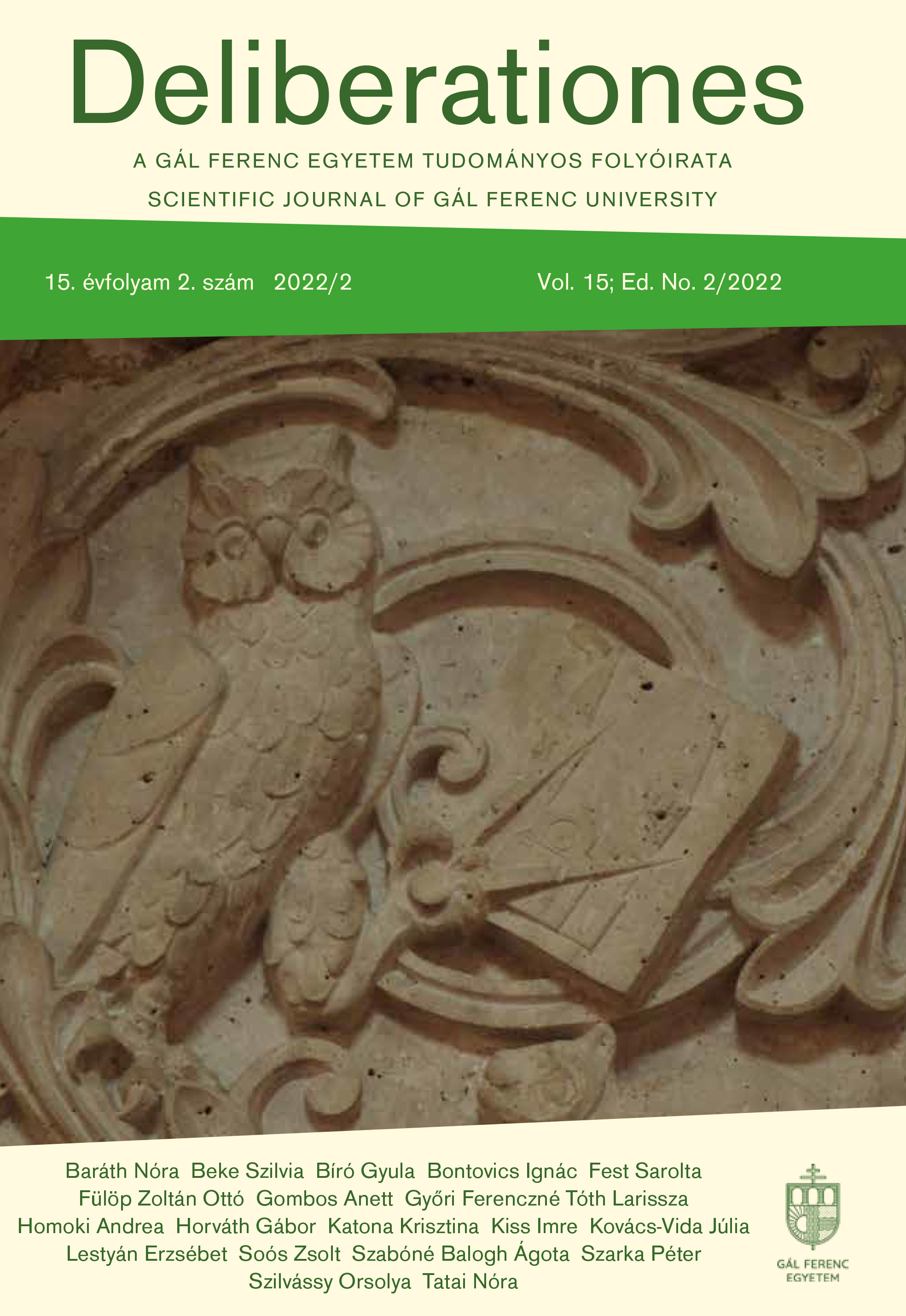Abstract
One of today's central problems affecting nutrition science is obesity, which not only affects the health of the adult population, but increasingly affects the everyday life of our children as well. Several studies have highlighted the rising trend of obesity and the importance of the accompanying chronic diseases.
In recent years, numerous prevention programs have been launched to curb this phenomenon and to develop healthy eating habits in children.
However, we must not forget the fact that the family is the primary socialization arena.
In their research, the authors would like to show from the parents' point of view how aware they are when they develop nutritional habits within the family, how realistically they see their children's habits, body weight, and body shape, as well as where and in what form they get information when this issue arises.
In the case of the investigation, a questionnaire method was used, which was distributed in primary school parent groups. Descriptive and mathematical statistical methods were used during the processing of the questionnaires.
It is evident that the family basically determines the child's later nutrition which public catering does not have a significant influence on. In many cases, parents judge their children's body shape unrealistically, they tend to judge a normal body shape as thin, while a slightly overweight one as normal. The quality of children's regular meals are significantly questionable already at this age since most children miss out on breakfast. If they do not they end up eating pastries that contain a large amount of sugar.
In the course of our work, we try to shed light on the nutritional, consumption and lifestyle habits that later lead to an obese adult, and at the same time, in many cases, predict the child's metabolic and cardiovascular diseases during adolescence.
References
Beke, S., & Turcsán, J. (2013). "Mintamenza" két "Mintaváros" tükrében. (M. Kölcseyné Balázs, Szerk.) Kitekintés-Perspective: Magyar-román-szlovák periodika, 25-30.
Bemutatta legutóbbi országos táplálkozási felméréseinek eredményeit az OGYÉI. forrás: Országos Gyógyszerészeti és Élelmezés-egészségügyi Intézet. https://ogyei.gov.hu/dynamic/osszefoglalo_otap_cosi_konferencia_20221103.pdf (Letöltés: 2022. november 3.)
Gaál, P. (2022). Társadalmi és technológiai innováció az egészségügyi rendszerek fejlesztésében. Ime – Az egészségügyi vezetők szaklapja, 21(1), 5-11.
Karácsonyi, I., Kölkedi, P. V., & Pakai, A. (2018). A családi tradíció szerepe a kisdedek és kisgyermekek táplálkozásában. Egészségfejlesztés, LIX (2), 17-25.
Kovács, V. A., & Erdei, G. (2019). Gyermekkori elhízás előfordulása Magyarországon (COSI). Magyar Tudomány, 180(5), 739–748. https://ogyei.gov.hu/dynamic/ megjelent%20 pdf%202019%20majus.pdf (Letöltés: 2023. 04 23.)
Központi Statisztikai Hivatal. (2020). Letöltés dátuma: 2023. 04 20, forrás: Központi Statistikai Hivatal: https://www.ksh.hu/docs/hun/eurostat_tablak/tabl/tsdph220.html
Martos, É. (2010). Európai összefogás a lakosság sócsökkentése érdekében-Nemzeti sócsökkentő program. Metabolizmus, 8(2), 23-24. https://doi:10.1136/BMJb4567
